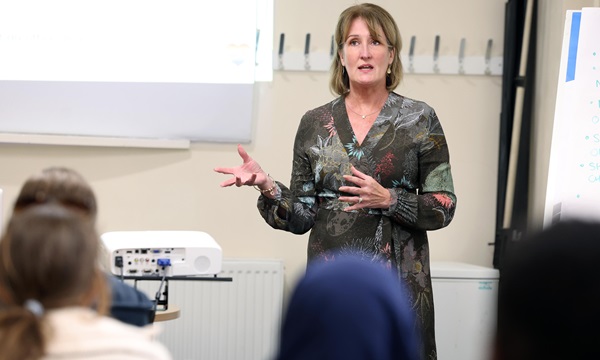CFOs see bank borrowing and debt issuance as less attractive sources of finance now than at any time since the financial crisis, according to Deloitte’s UK CFO Survey, Q4 2022.
As a result of this demand for credit is well below average levels and flagging with CFOs, with only 28% saying they expect their company’s demand for it to increase over the coming 12 months.
With interest rates at 3.5%, CFOs rate credit as being more expensive than at any time since 2009. Just over two-thirds (70%) of CFOs rate credit as costly, while 45% say that new credit is hard to get.
Conducted between 6 and 16 December 2022, Deloitte’s latest quarterly CFO Survey captured sentiment amongst the UK’s largest businesses at the end of a year of high inflation, supply disruptions and rapidly rising interest rates. 78 CFOs participated in the latest survey, including CFOs of 17 FTSE 100 and 32 FTSE 250 companies. The combined market value of the 53 UK-listed companies that participated is £363 billion, approximately 15% of the UK quoted equity market.
Inflation and risk
Despite the challenging macro environment, CFOs’ perception of external risk, particularly inflation, has eased since October’s peak. The CFO risk rating for 11* of the areas tracked in the survey have declined and only two, relating to weakness in the US economy and in emerging markets, increased.
The largest decline relates to inflation, a shift that is reflected in reduced perceptions of risk around supply chains, labour shortages and the prospect of higher interest rates. Concerns about energy prices and supply have eased significantly, consistent with the decline in energy prices since the summer and high levels of European stocks of gas.
CFOs report a fall in supply disruptions faced by their businesses over the quarter and expect substantial further falls over the next two years. Only one in ten CFOs expect significant or severe supply disruptions in a year’s time, the lowest reading since the question was included in the survey in mid-2021.
On average, CFOs** believe inflation will fall sharply from its current level to 5.8% in a year’s time. However, they expect it to stand at 3.3% (well above the Bank of England’s 2% target) in two-years' time.
Ian Stewart, chief economist at Deloitte, said:
“The most aggressive tightening of monetary policy in more than 30 years is reshaping corporate attitudes to debt. Not since the credit crunch have CFOs rated debt as being less attractive as a source of finance for their businesses than they do today. When interest rates were at very low levels, debt finance easily eclipsed equity as a source of finance. CFOs now see them as being roughly on par.”
“In the last two years CFOs have had to deal with the biggest inflationary shock since the late 1980s. But the tide seems to be turning and concerns about energy supply and prices have fallen back. CFOs’ perceptions of inflation risk have dropped from October’s peak, and expectations for supply shortages, recruitment difficulties and inflation have eased.”
Hiring, skills and investment outlook
CFOs’ expectations for hiring have fallen sharply since the previous survey, with a net 59% of CFOs*** expecting corporates to reduce hiring in the next 12 months.
Although CFOs report an easing of recruitment difficulties over the quarter, almost a third still rate these difficulties or labour shortages faced by their businesses as severe or significant. They see a sharp improvement in hiring conditions in a year’s time, with just 17% expecting severe or significant recruitment difficulties by then.
While CFOs expect to reduce capital expenditure (net 62%***), discretionary spending (net 78%) and hiring (net 59%) over 2023, they are positive on investment in skills and digital over the medium term. The overwhelming majority (net 92%) expect higher investment in workforce skills over the next three years, while almost eight in ten (net 79%) expect greater investment in digital technology and assets. Finally, a net 71% expect increased productivity growth and business performance over a three-year timeframe.
Ian Howse, senior partner at Deloitte in Wales, said:
“Tightening credit conditions mean CFOs continue to view credit as costly and unattractive alongside anticipating cuts in spending over the year ahead. But it’s encouraging to see that in the medium term most CFOs expect to invest more in workforce skills. A majority of finance leaders are also predicting to spend more on digital technology, assets and, in turn, believe that there will be greater productivity and business performance over the next three years.”





















